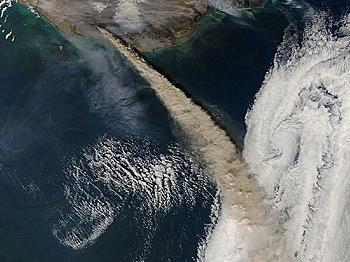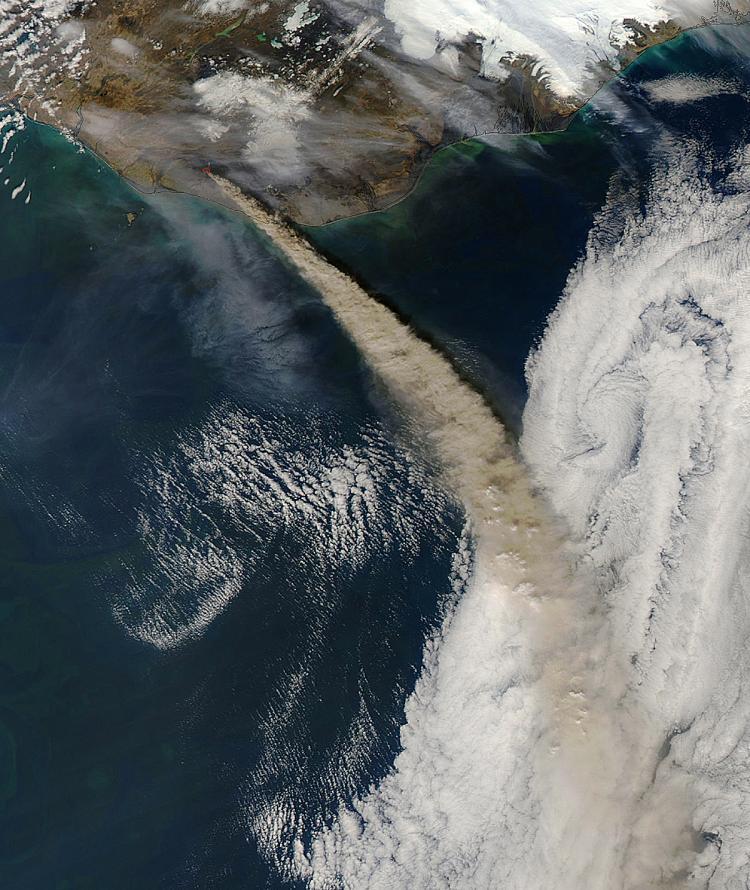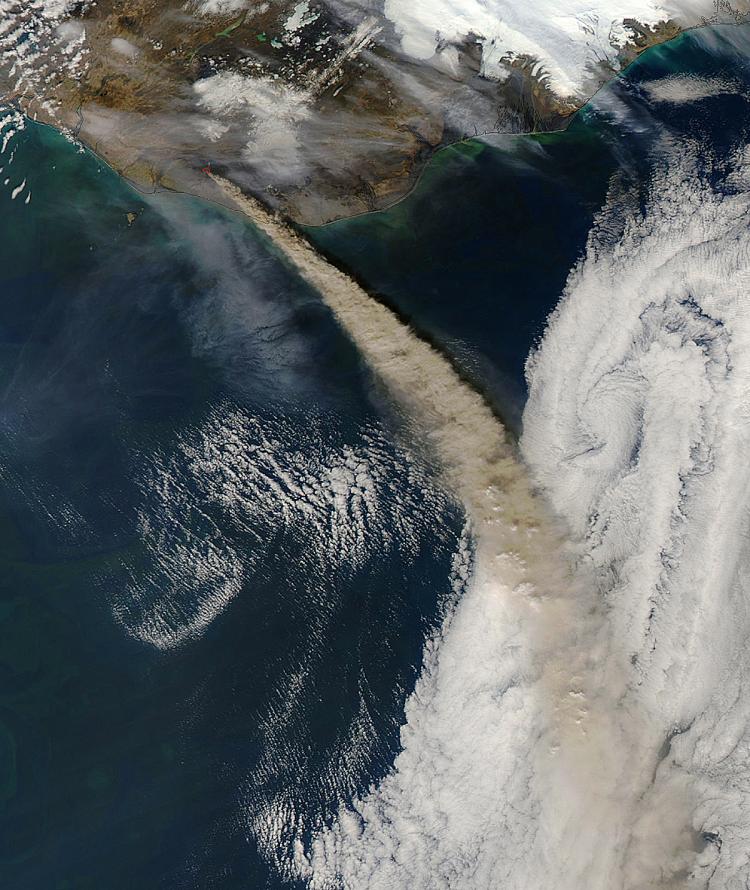The volcano located on Iceland’s Eyjafjallajokull glacier continues pour out ash in lingering clouds that are currently troubling parts of Africa and Western Europe. The volcano was recently seen shooting lava into the air, creating concern of another eruption.
The ash cloud from Iceland’s recent volcanic eruption in April dissipated slightly last month, allowing the opening of most European airports that were closed due to unsafe flying conditions. The airport closures, which affected the majority of European airspace, were the second largest series of shut-downs since World War II.
The continuing ash plumes from the volcano have added to the troublesome cloud that is currently causing concerns for Saudi Arabia, Morocco, Turkey, Spain, and Portugal.
“We really don’t know when it will settle down. So even if the volcano stops, we can look at this problem for a couple of weeks after,” said Bjoern Oddsson of the Institute of Earth Sciences to the Associated Press.
The European air safety organization has been discussing the adoption of American guidelines regarding flight safety, which would open up more space for flights. American air safety officials suggest a 120 mile no-fly zone around ash clouds while the European restriction is much greater, reported the Associated Press.
The concern regarding flying near ash clouds is more than a matter of visibility which is indeed a problem for pilots. The ash can also damage or stop engines, which is not a risk most airline companies are willing to take. No official decision has been announced regarding the change in policy.
Airports in Spain and Portugal were closed on Tuesday due to the ash cloud that is currently hovering over the Iberian Peninsula. The Christian Science Monitor has confirmed that the ash cloud is accompanied by smaller clouds over France, Ireland, and Spain.
Lava, fire, and ash were seen shooting out of the volcano Wednesday, which caught the attention of scientists monitoring the volcano. There have been reports that another eruption could be coming but no advisories or evacuations have been announced, reported UK Today News.
The ash cloud from the initial eruption closed multiple European airports last month causing cancelled flights in and out of regions such as the UK, France, Germany, and Russia. Travelers were stranded around the world waiting to get back into Europe and the cancellations led to millions of dollars of lost business for the European airline industry.
The ash cloud from Iceland’s recent volcanic eruption in April dissipated slightly last month, allowing the opening of most European airports that were closed due to unsafe flying conditions. The airport closures, which affected the majority of European airspace, were the second largest series of shut-downs since World War II.
The continuing ash plumes from the volcano have added to the troublesome cloud that is currently causing concerns for Saudi Arabia, Morocco, Turkey, Spain, and Portugal.
“We really don’t know when it will settle down. So even if the volcano stops, we can look at this problem for a couple of weeks after,” said Bjoern Oddsson of the Institute of Earth Sciences to the Associated Press.
The European air safety organization has been discussing the adoption of American guidelines regarding flight safety, which would open up more space for flights. American air safety officials suggest a 120 mile no-fly zone around ash clouds while the European restriction is much greater, reported the Associated Press.
The concern regarding flying near ash clouds is more than a matter of visibility which is indeed a problem for pilots. The ash can also damage or stop engines, which is not a risk most airline companies are willing to take. No official decision has been announced regarding the change in policy.
Airports in Spain and Portugal were closed on Tuesday due to the ash cloud that is currently hovering over the Iberian Peninsula. The Christian Science Monitor has confirmed that the ash cloud is accompanied by smaller clouds over France, Ireland, and Spain.
Lava, fire, and ash were seen shooting out of the volcano Wednesday, which caught the attention of scientists monitoring the volcano. There have been reports that another eruption could be coming but no advisories or evacuations have been announced, reported UK Today News.
The ash cloud from the initial eruption closed multiple European airports last month causing cancelled flights in and out of regions such as the UK, France, Germany, and Russia. Travelers were stranded around the world waiting to get back into Europe and the cancellations led to millions of dollars of lost business for the European airline industry.






